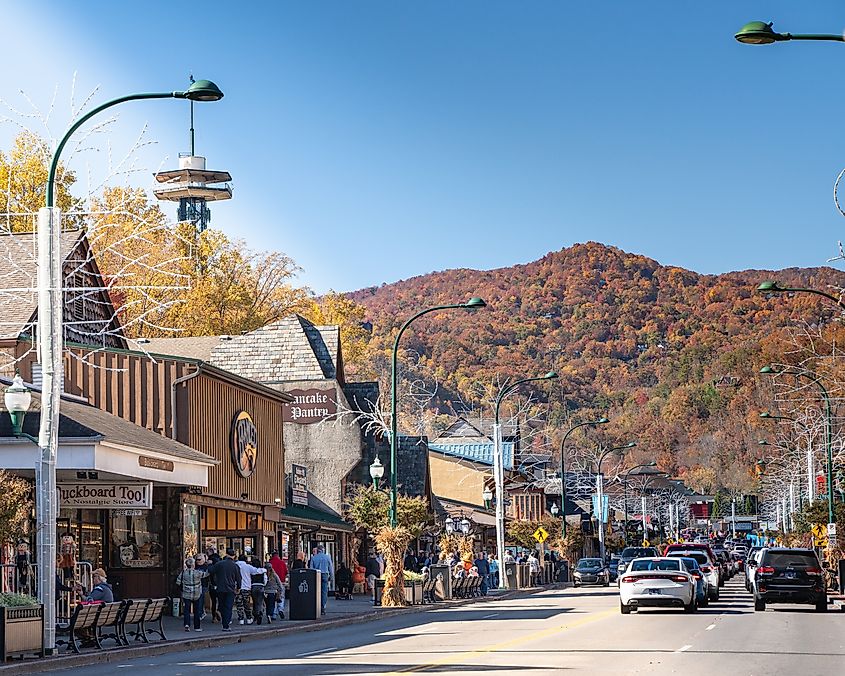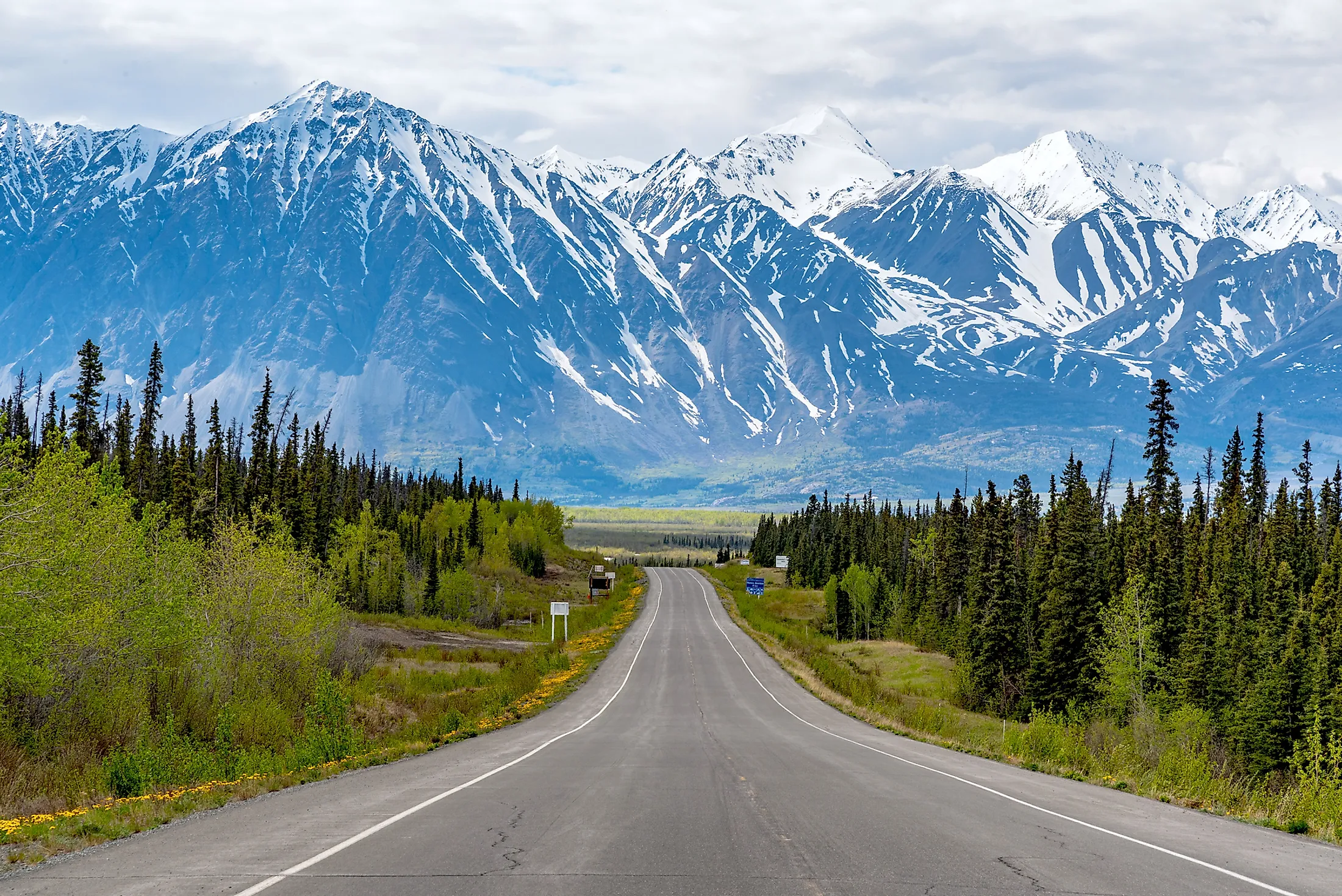
13 Small Towns In Tennessee To Visit For A Weekend Getaway
Tennessee, a state stretching across nearly 440 miles from the mighty Mississippi River to the rugged Appalachian Mountains, boasts a remarkable blend of cultural and geographic diversity rarely found elsewhere in the United States, offering a plethora of weekend getaway destinations that provide much more than mere stopovers; they serve as vibrant, breathing chapters in the state’s ongoing story. These towns offer a deep dive into Tennessee’s unique identity, attracting a growing segment of the tourism market seeking authentic experiences beyond the well-trodden paths of Nashville and Memphis. According to a recent study by the Tennessee Department of Tourist Development, small-town tourism has seen a growth of approximately 15% year-over-year, indicating a rising demand for these off-the-beaten-path destinations.
In the eastern part of the state, historic frontier outposts like Jonesborough and Greeneville meticulously preserve 18th-century architecture and significant Revolutionary War landmarks, offering a tangible connection to the nation’s formative years. Central Tennessee, cradling river towns such as Columbia and Lynchburg, remains steadfast in its commitment to time-honored traditions like whiskey production, mule trading, and the creation of local crafts – practices that have thrived for over a century. These towns collectively highlight that Tennessee’s true allure extends beyond the bustling music scene of Nashville or the blues heritage of Memphis, finding its essence in the tranquil havens where the state’s rich history, creative spirit, and unspoiled natural beauty converge every weekend.
Townsend
Nestled between the serene Little River and the picturesque foothills of the Smoky Mountains, Townsend manages to maintain its unhurried, small-town charm despite its proximity to the iconic Great Smoky Mountains National Park. A visit should begin with an exploration of the Tuckaleechee Caverns, a captivating underground network renowned for its stunning 210-foot Silver Falls and the awe-inspiring, cathedral-like Big Room. Guided tours, lasting around 90 minutes, provide an in-depth look at these geological wonders. Just outside of Townsend lies the Townsend Wye, marking the convergence of the Little River and Middle Prong, where visitors can indulge in swimming or rent tubes and kayaks from nearby outfitters like River Rat Tubing.
The Great Smoky Mountains Heritage Center provides insight into Appalachian life through exhibits of Native American artifacts, pioneer cabins, and 19th-century tools. For a leisurely experience, take a stroll or bike ride along the Townsend Historical Trail, a 10-mile paved path connecting local shops and cafes. For accommodation, the Dancing Bear Lodge, a 38-acre wooded property, offers cozy cabins, fire pits, and farm-to-table dining near the park entrance. "Townsend exemplifies the quiet charm that draws visitors seeking respite from urban life," notes Dr. Emily Carter, a cultural tourism specialist at the University of Tennessee. "Its blend of natural beauty and historical preservation makes it a unique destination."
Pigeon Forge

Located in Sevier County, just five miles north of the Great Smoky Mountains National Park, Pigeon Forge offers convenient access to the mountains while also providing ample in-town entertainment. The Old Mill Square, with its operational 1830s gristmill, serves as the heart of downtown, producing flour for its restaurant and bakery. Locals often recommend the chicken pot pie and corn chowder. The Titanic Museum Attraction, featuring over 400 recovered artifacts, recreated first-class cabins, and a full-scale grand staircase, provides a meticulously researched glimpse into maritime history.
Families often spend evenings at The Island in Pigeon Forge, home to the 200-foot Great Smoky Mountain Wheel, boutique shops, and nightly fountain shows. The Margaritaville Island Hotel offers convenient lodging with private balconies overlooking The Island, providing easy access to dining, rides, and shops. According to local business reports, The Island contributes an estimated $35 million annually to the Pigeon Forge economy, highlighting its significance as a tourist draw.
Bristol
Straddling the Tennessee-Virginia state line, Bristol is renowned for its musical heritage and high-octane racetrack energy. The Bristol Motor Speedway, an iconic landmark, offers guided infield tours, allowing visitors to walk the 28-degree banked turns and explore the adjacent Bristol Dragway, which hosts national NHRA events. Downtown State Street, dividing the two states, is lined with vintage neon signs, cafes, and music stores. The Paramount Center for the Arts, a restored 1931 theater, hosts live performances.
The Lost State Distilling tasting room offers small-batch Tennessee whiskey and gin, with staff sharing stories of the town’s Prohibition-era past. The Quality Inn Bristol, located minutes from the Bristol Motor Speedway, offers straightforward but comfortable rooms and includes breakfast. The town’s dual identity, rooted in both motorsports and music, creates a unique cultural landscape. "Bristol’s appeal lies in its ability to seamlessly blend its racing heritage with its rich musical roots," says John Davies, a regional historian. "This combination makes it a must-visit destination for those seeking an authentic Appalachian experience."
Greeneville
As one of Tennessee’s oldest towns, Greeneville offers a palpable sense of history through its preserved landmarks and local craftsmanship. The Andrew Johnson National Historic Site, anchored downtown, includes the 1830s brick home of the 17th U.S. president, his tailor shop, and a small museum displaying Civil War-era documents and original family belongings. The City Garage Car Museum showcases over 40 vintage vehicles, including a 1914 Ford Model T and classic muscle cars from the 1960s.
Kinser Park features riverside walking trails, a 1.8-mile nature loop, and kayak access with rentals available nearby in summer. The Capitol Theatre, a restored 1930s venue, hosts live music and regional film screenings. The General Morgan Inn, an 1880s building, offers restored rooms, period furnishings, and Brumley’s restaurant, renowned for its hand-cut steaks and Appalachian-style trout. According to the National Park Service, the Andrew Johnson National Historic Site attracts over 50,000 visitors annually, contributing significantly to Greeneville’s tourism economy.
Sewanee
Sewanee distinguishes itself with its collegiate architecture, forested plateaus, and open overlooks. The University of the South campus, the town’s centerpiece, features Gothic Revival buildings, All Saints’ Chapel with intricate stained-glass windows, and quiet walking paths. The Perimeter Trail, a 20-mile loop around the Cumberland Plateau, offers accessible hikes like the two-mile Bridal Veil Falls Trail, ending at a 25-foot waterfall.
The Sewanee Natural Bridge, three miles from downtown, spans a sandstone arch with views across Lost Cove. The Sewanee Inn, located at the university entrance, offers spacious rooms overlooking the golf course and provides easy access to campus trails. The town’s unique blend of academic and natural environments makes it a draw for both scholars and outdoor enthusiasts.
Gatlinburg
Gatlinburg seamlessly borders the Great Smoky Mountains National Park, with trailheads, distilleries, and galleries all within minutes of each other. The Gatlinburg Trail, a 3.8-mile round-trip path along the West Prong of the Little Pigeon River, is one of the park’s few dog-friendly paths and passes remains of early settler homes. The Great Smoky Arts & Crafts Community, located eight miles northeast of downtown, features over 80 studios where local artisans create pottery, glasswork, and quilts.
The Tennessee Homemade Wines tasting room serves small-batch fruit wines sourced from local growers, while the Gatlinburg SkyLift Park carries visitors 1,800 feet up Crockett Mountain to walk the SkyBridge, a 680-foot pedestrian suspension bridge. The Bearskin Lodge on the River offers rustic architecture with easy access to both the park entrance and downtown attractions. Gatlinburg’s strategic location as a gateway to the Smokies drives its robust tourism industry, which contributes an estimated $1 billion annually to the local economy.
Signal Mountain
Built atop Walden Ridge, Signal Mountain overlooks the Tennessee River Gorge and provides an escape from Chattanooga. Signal Point offers a view of the Tennessee River Gorge, once used as a Union Army observation site during the Civil War. The 0.3-mile trail to the overlook connects to the longer Cumberland Trail. The Edward’s Point Trail, a four-mile round trip, ends with views of the river bend.
The Falling Water Falls State Natural Area features a 110-foot waterfall. The Mountain Arts Community Center (MACC) hosts weekend pottery and music workshops inside a 1926 school building. The Hampton Inn & Suites Chattanooga/Downtown offers modern rooms and access to scenic trails and Chattanooga’s riverfront attractions.
Jonesborough
Jonesborough retains its 18th-century charm with cobbled sidewalks, red-brick facades, and a community built around storytelling and craftsmanship. The International Storytelling Center hosts performances from storytellers and seasonal events. The Chester Inn Museum showcases 1790s architecture and exhibits tracing the town’s history.
The McKinney Center offers pottery, painting, and theater workshops. Persimmon Ridge Park features hiking trails, disc golf, and picnic areas. The Historic Eureka Inn, built in 1797, offers antique décor.
Elizabethton
Elizabethton traces its roots to the Watauga Settlement of the 1770s. The Sycamore Shoals State Historic Park preserves the site of the 1775 Watauga Treaty and features a reconstructed frontier fort, walking paths, and a museum. The Elizabethton Covered Bridge, built in 1882, stretches 134 feet across the Doe River.
The Downtown Historic District includes stores like the Coffee Company. The Tweetsie Trail connects Elizabethton to Johnson City. Americourt Hotel Elizabethton is a practical option off Highway 19E.
Columbia
Columbia, along the Duck River, has evolved into a walkable town. The President James K. Polk Home & Museum organizes tours through Federal-style rooms and displays presidential items. Downtown Columbia centers around the courthouse square with antique stores and cafes.
The Riverwalk Park Path follows the Duck River. The Hampton Inn Columbia offers modern amenities and access to the historic district. The city’s revitalization efforts, focusing on preserving its historic architecture and enhancing its cultural offerings, have attracted increased tourism and investment.
Tellico Plains
Tellico Plains serves as the gateway to the Cherokee National Forest. The Cherohala Skyway Visitor Center introduces travelers to the National Scenic Byway. The Charles Hall Museum houses over 10,000 artifacts.
The Tellico River Recreation Area includes picnic spots and access for fly-fishing or kayaking. The Tellico Grains Bakery is known for its wood-fired breads. The Lodge at Tellico provides log-style rooms overlooking the mountains.
Rogersville
Rogersville prides itself as the “cradle of Tennessee journalism.” The Thomas Amis Historic Site features the original stone tavern and mill ruins. The Hale Springs Inn from the 1820s serves regional classics.
The Rogersville Historic District includes antique stores and the county courthouse. Rogersville City Park has a walking path and playgrounds. The Comfort Inn Rogersville offers access to the historic district and local dining.
Lynchburg
Lynchburg is known as the birthplace of Tennessee whiskey. The Jack Daniel’s Distillery features tours through its limestone spring and barrelhouses. Visitors can join tasting sessions.
The Lynchburg Town Square anchors the community with 19th-century storefronts. Miss Mary Bobo’s Boarding House is known for family-style Southern meals. The Lynchburg Hardware & General Store functions as a museum-shop dedicated to the Jack Daniel’s legacy. The Lynchburg Country Inn offers cozy stays.
Tennessee’s smaller communities offer a balance of history, landscape, and hospitality. These towns allow travelers to experience mountain overlooks and quiet river valleys, all while maintaining a sense of regional identity.


